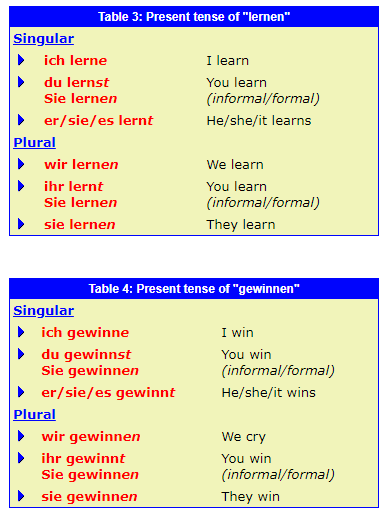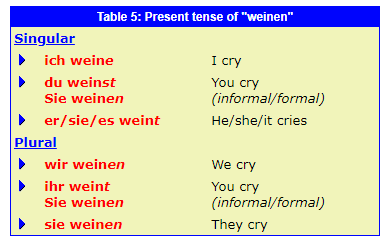In the present tense, German verbs whose infinitive stem ends in consonant + n:
add -est and not -st in the "du" form
add -et and not -t in the "er/sie/es" form
add -et and not -t in the "ihr" form
Such verbs include begegnen (to meet), bewaffnen (to arm), sich eignen (to be suitable), entgegnen (to reply), sich ereignen (to happy), leugnen (to deny), öffnen (to open), ordnen (to order, to organize), rechnen (to calculate), regnen (to rain), segnen (to bless), trocknen (to dry), vervollkommnen (to perfect), sich wappnen (to prepare oneself), zeichnen (to draw).

Normal present tense endings are applied however:
if the -n in the stem of the verb follows l or r i.e. in verbs such as "lernen" (to learn)
if the -n in the stem of the verb follows another n i.e. in verbs such as "gewinnen" (to win)
if the -n in the stem of the verb is preceded by a vowel i.e. in verbs such as "weinen" (to cry) or "scheinen" (to appear)


 英语
英语 日语
日语 韩语
韩语 法语
法语 西班牙语
西班牙语 意大利语
意大利语 阿拉伯语
阿拉伯语 葡萄牙语
葡萄牙语 越南语
越南语 俄语
俄语 芬兰语
芬兰语 泰语
泰语 丹麦语
丹麦语 对外汉语
对外汉语

